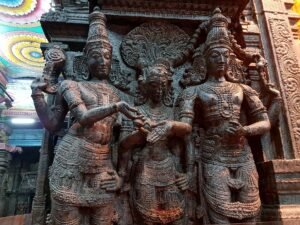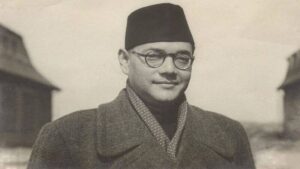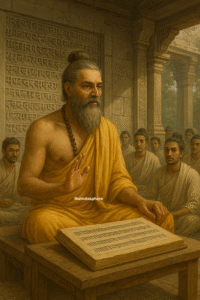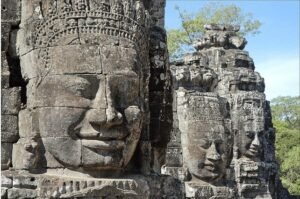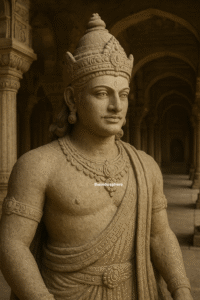Introduction
Tipu Sultan, the ruler of the Kingdom of Mysore from 1782 to 1799, is a prominent figure in Indian history. While he is often celebrated for his military prowess and resistance against British colonialism, there is another, darker side to his rule. Tipu Sultan’s reign was marked by significant persecution of Hindus and other non-Muslim populations. This blog post delves into the historical accounts and evidence of these persecutions, presenting a detailed examination of his actions against these communities.
Forced Conversions
One of the most controversial aspects of Tipu Sultan’s reign was his policy of forced conversions. Historical records suggest that Tipu Sultan undertook a systematic campaign to convert Hindus to Islam. This was particularly evident in regions such as Coorg, Malabar, and the coastal areas of Karnataka.
Malabar (1788-1792):
In Malabar, contemporary accounts and letters describe large-scale forced conversions. Tipu Sultan’s letters to his officers explicitly instructed them to convert Hindus to Islam and to destroy Hindu temples. Sir William Logan, in his “Malabar Manual,” mentions that around 70,000 Hindus were forcibly converted to Islam in Malabar alone. One such letter from Tipu Sultan to the Governor of Calicut, dated January 19, 1790, orders the governor to seize Brahmins and convert them to Islam forcibly.
Coorg (1785):
In Coorg, Tipu Sultan’s campaign led to the forced conversion of thousands of Hindus. Around 80,000 Kodavas (the local Hindu community) were reportedly captured and forcibly converted. This event is particularly well-documented due to the severe impact it had on the Kodava community, both demographically and culturally.
Destruction of Temples
The destruction of Hindu temples under Tipu Sultan’s rule is another aspect that underscores his persecution of Hindus. Several temples in his kingdom were either destroyed or converted into mosques. For example:
Sringeri Temple (1791):
The Sringeri Sharada Peetham, an important center of Hindu learning and culture, was attacked and plundered by Tipu Sultan’s forces. Historical records from the Sringeri Matha detail the destruction and desecration of the temple, causing immense distress to the Hindu population. The letters exchanged between the Sringeri pontiff and Tipu Sultan, wherein the pontiff requests protection and help to restore the temple, are crucial historical documents that shed light on these events.
Kollur Mookambika Temple (Late 18th Century):
The Kollur Mookambika Temple in Karnataka, another significant Hindu religious site, was attacked and damaged during Tipu Sultan’s campaigns. The temple’s priests and devotees faced persecution, leading to a decline in the temple’s activities during his reign.
Varaha Narasimha Temple in Srirangapatna (1784):
According to some accounts, the Varaha Narasimha Temple in Srirangapatna was desecrated, and the deity’s idol was damaged under Tipu Sultan’s orders. This temple, situated close to Tipu’s stronghold, bore the brunt of his anti-Hindu policies.
Massacres and Oppression
Tipu Sultan’s reign also witnessed numerous massacres and acts of oppression against Hindus and other non-Muslims. Some notable instances include:
Coorg Massacre (1785):
When Tipu Sultan invaded Coorg, he ordered the killing of thousands of Kodavas. Contemporary accounts suggest that around 70,000 Kodavas were either killed or forcibly converted to Islam. This event had a profound impact on the Kodava community, leading to a significant demographic change.
Massacre in Malabar (1788-1792):
In the Malabar region, Tipu Sultan’s army carried out brutal massacres, targeting Hindu men, women, and children. Reports from this period indicate that entire villages were decimated, and those who survived were often forcibly converted to Islam. These actions were part of his broader strategy to suppress resistance and consolidate his power.
Massacre of Melkote (1790):
In Melkote, a town in Karnataka, Tipu Sultan’s forces are reported to have massacred several Hindus and desecrated the temple. This act of violence was intended to terrorize the local population and assert his dominance over the region.
Discriminatory Policies and Taxation
Discriminatory policies against Hindus were another hallmark of Tipu Sultan’s administration. Hindus were subjected to higher taxes compared to Muslims, and they faced various restrictions on their religious and social practices.
Jizya Tax:
The Jizya tax, traditionally levied on non-Muslims in Islamic states, was imposed on Hindus in Tipu Sultan’s kingdom. This tax added a significant financial burden on the Hindu population, exacerbating their economic hardships.
Restrictions on Religious Practices:
Hindu festivals and rituals were often restricted. In some instances, Tipu Sultan’s officials disrupted Hindu ceremonies, creating an atmosphere of fear and insecurity among the Hindu population. These actions were part of a broader effort to undermine Hindu religious and cultural identity.
Conclusion
Tipu Sultan’s legacy is a complex and contested one. While he is celebrated by some for his resistance against British colonialism and his efforts to modernize his kingdom, there is substantial evidence of his persecution of Hindus and other non-Muslim communities. The forced conversions, destruction of temples, massacres, and discriminatory policies paint a stark picture of his rule from the perspective of the persecuted populations.
Understanding this aspect of Tipu Sultan’s reign is crucial for a balanced and comprehensive view of history. It highlights the importance of acknowledging and remembering the suffering of those who were oppressed and persecuted during his rule, ensuring that their stories are not forgotten in the broader narrative of India’s past.

